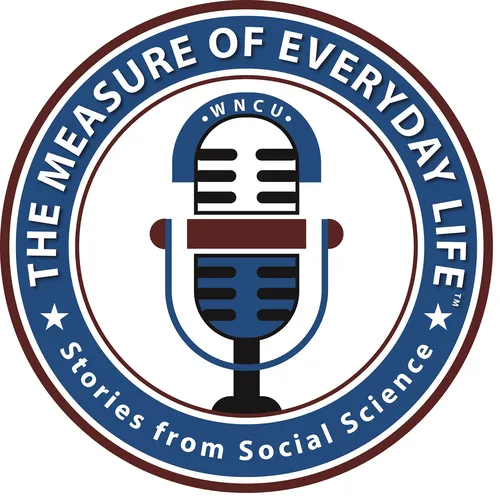
The Measure of Everyday Life
Interested in human behavior and how people think? The Measure of Everyday Life explores ideas about how we live and why people act as they do. Independent Weekly has called the show "unexpected" and "diverse" and says the show "brings big questions to radio." Join host Dr. Brian Southwell (@BrianSouthwell) as he explores the human condition.
Episodes air each Sunday night at 6:30 PM in the Raleigh-Durham broadcast market and a podcast of each show is available online the Wednesday following. The show is made possible by RTI International.
- Update frequency
- every 10 days
- Average duration
- 29 minutes
- Episodes
- 103
- Years Active
- 2021 - 2025

A History of Historically Black Colleges and Universities
In 1965, the United States Congress officially recognized Historically Black Colleges or Universities as schools of higher learning, but the history of HBCUs extends all the way back to the 1830s. On…

Food Insecurity on College Campuses
Every fall in the U.S., students across the country head off to college. What you might not know is that some of them aren’t sure if they are going to have enough to eat when they are there. On this …

The Long-Term Effects of Good Teaching
Can you remember a teacher who affected your life? As many students return to school in the U.S., we know teachers can have important effects. How exactly does good teaching make a difference? On thi…

Farming and Race
With the increase in food prices in recent years, farming has been in the news and farming continues to be challenging work. In the U.S., various organizations have sought to support young farmers in…

Face Time and Emotion
When we talk with people who aren't in the same room as us, we often are not limited to phone calls or written correspondence anymore. What difference does it make to see someone’s facial expressions…

Acting as a Team
We often refer to teams and teamwork, both as an explanation for success and as a worrying force as we consider polarization in society. On this episode, we talk with Don Forsyth, a psychology profes…

Managing Group Discussion
Every day, many of us have conversations with small groups of people. Sometimes that now happens via videoconference or group chat. A lot happens when groups try to talk, though, that you might not r…

Philanthropy as a Bet on the Future
Philanthropy is sometimes cited as a force for good in the 21st century. People have donated money for societal gain for hundreds of years, though, and we can learn lessons from the successes and fai…

Homelessness and Housing
The real estate market in the U.S. has been in the headlines recently. What might that have to do with the challenge of homelessness? On this episode, we talk with Gregg Colburn, faculty member at th…

Toxic Workplaces
Chances are that if you have earned a paycheck you have had at least one day negatively affected by the behavior of a co-worker, supervisor, or employee. What do organizational psychologists say abou…

Making Sense of Social Media
When historians consider this moment through which we are all living, what might they say about social media? On this episode, we talk about the roles social media are playing in the lives of teenage…

Working from Home
One experience that many of us have had during the pandemic is working from home. What has been the effect of that on our interactions with colleagues? On this episode, we talk with Rory McGloin of t…

Laughter and Social Connection
Why do we laugh? What is the point? On this episode, we discuss laughter as a source of joy and as a tool for connecting people with Adrienne Wood, a psychology professor and laughter researcher at t…

Exercise and Our Brains
What good might exercise do for our brain? You may have experienced a sense of relief in the short-term after working out. Exercise also can have important long-term effects on our brains. On this ep…

Understanding Money
News headlines often refer to financial concepts such as inflation. Even though many of us spend money almost every week, exactly what money is and how it gets distributed around the world isn’t alwa…

Beyond Humanity
With new technologies, it is now possible to alter a human being into something different than they were. As a result, we are facing new ethical and philosophical challenges. Stefan Sorgner, professo…

Singing Together to Build Community
Human beings find inspiration in making music together. The COVID-19 pandemic has challenged our ability to gather but people have still found ways to sing together. What can we learn from our histor…

Music for Stress Relief
As we begin a new year, many of us have faced stress and are searching for ways to cope. One source of relief is an old one: namely, music. Researchers now are learning to use music to manage stress.…

Addiction Treatment Using Telehealth
The COVID-19 pandemic has forced many addiction treatment providers to change from delivering most treatment in person to delivering treatment via telehealth. What can we learn from that experience? …

Measuring COVID
One constant during our last two years has been change as we have seen incidence numbers for COVID-19 rise and fall and rise. How do we know that we have the data we need to make sense of the world a…